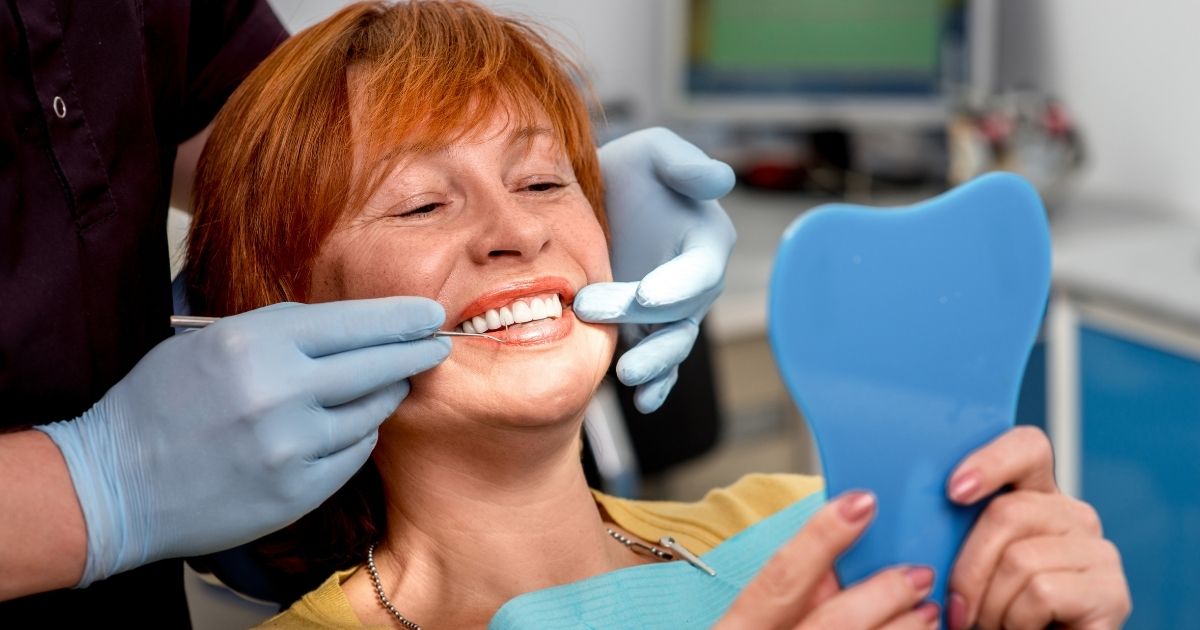Dental implants are a common solution to replace missing teeth due to their ability to function like natural teeth. During dental implant surgery, an oral surgeon places small titanium screws into the jawbone to serve as artificial tooth roots to create a stable foundation for attaching replacement teeth.
Receiving dental implants requires a few different procedures to prepare the mouth for the implants. One of the earliest steps is surgery to install the implants, which typically takes one to two hours per implant. Following surgery, healing is crucial to allow the implant to integrate into the jawbone and develop the strength to support the tooth crowns to be placed later. The average healing period is four to six months.
Following your oral surgeon’s post-surgery instructions is essential for proper healing, especially instructions related to post-surgical eating and drinking.
For the first 12-24 hours following surgery, you will likely experience some pain and swelling at the incision point, along with some minor bleeding. These symptoms should dwindle over the first 24 hours, but you will be advised to consume only soft foods to avoid damaging the surgical site and prevent pain and bleeding. Stick to soft foods such as:
- Applesauce
- Broth or creamed soup
- Ice cream
- Mashed potatoes
- Pudding
- Yogurt
Once you feel you can begin chewing again, you can slowly incorporate soft foods, such as avocados, scrambled eggs, bananas, pasta, and boiled or steamed vegetables. Only chew on the side of your mouth without the incision, and rinse your mouth with water after eating to prevent infection at the incision site.
Consume water throughout the day to prevent dehydration while on a limited diet. Do not use a straw when drinking, as the suction can dislodge the blood clot at the incision site, promote bleeding, or allow food to enter and cause an infection.
What Foods Can I Eat the First Week Following Dental Implant Surgery?
You can begin returning to your regular diet after the first day. However, you should be cautious, chew slowly, and focus on softer foods initially. You can safely enjoy foods such as:
- Proteins, including eggs, chicken, fish, or ground beef
- Healthy carbohydrates, such as oats, sweet potatoes, brown rice, grits, or cooked beans or lentils
- Dairy products, including yogurt, protein shakes, cottage cheese, milk, and ice cream
When consuming grains, such as oats or rice, cook thoroughly until soft and remove nuts or seeds. After the first 24 hours, resume your normal eating schedule for faster healing. After the first few days, or first week, you can begin to chew at the surgical site but do so carefully and with softer foods. You should be able to chew normally and consume tougher foods within a few weeks.
What Foods Should I Avoid After Dental Implant Surgery?
Following your oral surgeon’s instructions on what not to eat is as essential for proper healing as the instructions regarding what you are permitted to eat. Foods that should be avoided following dental implant surgery include:
- Acidic foods, including tomatoes, oranges, or pineapples
- Berries and other foods containing seeds
- Carbonated beverages
- Coffee, tea, or other hot beverages
- Crunchy food, such as potato chips, pretzels, granola, or popcorn
- Food at hot temperatures
- Raw fruits and vegetables
- Spicy foods, including hot peppers
- Sticky foods, such as gummies, dried fruit, caramel, or gum
- Sugary foods, such as candy or cookies
Both lists of what can and cannot be consumed are not exhaustive. Before your surgery, read your surgeon’s specific instructions for eating and drinking.
South Jersey Oral Surgeons at Lanzi Burke Oral & Maxillofacial Surgeons Improve Patients’ Oral Health
With Dental Implant Surgery Contact our South Jersey oral surgeons at Lanzi Burke Oral & Maxillofacial Surgeons to learn more about dental implants. Call us at 856-582-4222 or contact us online to schedule an initial consultation. Located in Washington Township, Haddonfield, and Woolwich Township, New Jersey, we serve clients in South Jersey.


